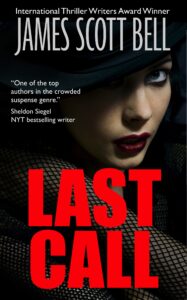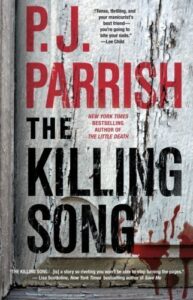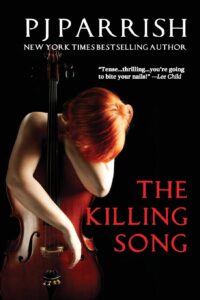By Debbie Burke
@burke_writer

Photo credit: Wikimedia Commons
Please welcome another Brave Author who’s submitted a first page for a story entitled:
My Brief Life and Tragic Death
Chapter 1. Purple Pumpkins
I met Frank and survived an assassination attempt between lunch and teatime.
I suppose it started with the whistling. I had the palace library all to myself, as usual. The hush was shattered when a boy walked in, whistling. He caught sight of me and approached. It’s hard to smirk and whistle at the same time, but he managed it. When he reached my table, he stopped whistling and stood smiling at me. It was a good smile. It invited me to smile back, which I didn’t, of course.
He was a handsome boy of about thirteen, a year older than myself, with a haircut from the California side of the gateway. I liked him at once, which annoyed me. I didn’t get along with my fellow children.
His smile and likability made me uncomfortable. I gave him a cold stare. “This is a library, you know.”
He looked around in pretended astonishment.
I added, “You can tell from all the books? At least, I hope you can.”
“I’ll take your word for it. Hey, maybe you can help me. I’m looking for a sweet little girl named Flavia.”
I placed a bookmark and closed my book. “Are you being irritating on purpose?”
“Of course I am. How about you?”
I was taken aback. “Why?”
“Look, babe, do you know where Flavia is or not?”
“I’m Princess Flavia.”
“Then your portraits don’t do you justice. I like the freckles especially. A freckle is a beacon of honesty in a mendacious world. Allow me to introduce myself. Frank Barron, at your service.” He stuck out his hand.
If you ignored his actual words, he was wonderfully well-spoken, especially for his age. He had that command of language which only an intelligent person who reads a great many books develops, but without the stiff delivery of someone like me, for whom books are their only friends. I was a bit regretful when I said, “Princesses don’t shake hands.”
“Oh, that’s all right. I’m not a princess.”
I rolled my eyes. “But I am.”
~~~
First impressions:
Let’s start with the title: My Brief Life and Tragic Death.
It implies the first-person narrator, 12-year-old Princess Flavia, is apparently already dead. Is this fantasy? Magic realism? Is it similar to Alice Sebold’s The Lovely Bones, told by a murdered teenager watching her family deal with the repercussions of her death?
I’m not sure what’s happening but I’m intrigued.
The first line drops a provocative bomb about an assassination attempt. That definitely qualifies as a disturbance in anyone’s life. But the tone struck me as too casual and matter-of-fact. I can’t imagine a 12-year-old girl, even a self-possessed princess, being this blasé about someone trying to kill her.
Next, the scene flips back to earlier that day. Flavia is alone in the palace library when her reading is interrupted by the entrance of a whistling boy who’s looking for her. This also qualifies as a disturbance, although on a much smaller scale than an assassination attempt.
Foreshadowing and disturbances, major and minor, kick off a good start, enticing the reader into the plot. Nice job, Brave Author.
Setting and Time:
The mention of teatime suggests the locale is the British Isles, so a haircut from the California side of the gateway sounds exotic and faraway to the cloistered Flavia. Although the haircut and the gateway aren’t clearly defined yet, that’s okay. Longer descriptions could bog down the forward momentum at this point. I’m willing to wait for more explanation.
The time period isn’t defined. Physical books in a library could be contemporary but might also indicate a past before digital books. Again, I’m willing to wait to find out.
Characterizations:
Right away, Flavia’s character interests me. She sounds much older than her age. She’s alienated from people and may be lonely but won’t admit it: I didn’t get along with my fellow children.
She doesn’t react in predictable ways: His smile and likability made me uncomfortable.
And she’s irritated by her reactions, as if she can’t control her own mind: I liked him at once, which annoyed me.
The author raises questions: Why does Flavia react like this? Why does she expect herself to be detached from normal human emotions? As a princess, is she pressured to behave a certain way? Does she secretly want to rebel against those conventions?
Flavia is a character in conflict with herself. Already she’s presented enough complicated psychology to make a reader want to learn more about her. Well done.
Her observation of Frank is not superficial. Like a normal adolescent girl, she notices he is handsome but she also digs deeper, probing into his character.
Frank is brash, cocky, yet charming. She’s interested but, for some unknown reason, can’t allow herself to like him.
Brave author, in a very few lines, you’ve skillfully painted a picture not only of Frank’s appearance but also his personality.
Flavia quickly sets Frank straight that she is a princess who won’t tolerate being called “babe.” Frank isn’t at all fazed by being put in his place and goes on to eloquently charm her, while at the same time giving readers a quick sketch of what Flavia looks like: Then your portraits don’t do you justice. I like the freckles especially. A freckle is a beacon of honesty in a mendacious world.
In first person, it’s difficult to find effective ways for a character to describe herself without resorting to cliches like looking in a mirror. This was a nice blending of dialogue and description that didn’t sound forced.
Voice:
The humor works well. The banter between aloof Flavia and smartass Frank is entertaining. They keep trying to one-up each other, competing over who gets the last word. That creates ongoing tension between them. The reader wants to find out who wins the verbal jousting.
The author also nicely juxtaposes that humor with Flavia’s wistful longing for connection with another human.
The following is my favorite sentence:
He had that command of language which only an intelligent person who reads a great many books develops, but without the stiff delivery of someone like me, for whom books are their only friends.
That really pins down both personalities and poignantly conveys Flavia’s loneliness.
Audience:
Flavia’s age indicates the target audience may be Young Adult. Overall, I like her voice, even though she sounds much more mature than an average 12-year-old. I know intelligent, articulate, well-read kids like her so she comes across as unusual but still realistic.
Line editing:
What if you rearrange the order of the first sentence like this?
Between lunch and teatime, I met Frank Barron and survived an assassination attempt.
Switching the assassination attempt to the end of the sentence creates a more dramatic punchline.
Another thought about the first line: it could come off as a gimmicky ploy unless the author delivers a payoff within a few pages.
Is Frank the savior who thwarts the attempt on her life? That creates a compelling reason for an ongoing relationship between them.
Or is he the would-be assassin?
Because Flavia already knows what happens (even though the reader doesn’t), she could foreshadow a little more.To raise tension, perhaps she wonders how he got past security into the palace library.
The phrase If you ignored his actual words confused me.
Here’s what Frank says: “Then your portraits don’t do you justice. I like the freckles especially. A freckle is a beacon of honesty in a mendacious world. Allow me to introduce myself. Frank Barron, at your service.”
His “actual words” show a sophisticated command of language so I don’t understand why Flavia talks about ignoring them. Maybe delete the phrase: If you ignored his actual words,
~~~
Overall, this first page works well. The characters are likable, multi-dimensional, and complex. There’s conflict, tension, and suspense.
Additionally, the author proof-read and submitted a clean page without typos, misspellings, or grammatical errors.
YA, fantasy, and magic realism are not genres I’m terribly familiar with. But the Brave Author did a good job of pulling me into this intriguing submission. Thank you for sharing it!
~~~
TKZers: What do you think of Flavia and Frank? Are you interested in the premise? Any suggestions for our Brave Author?
















 It’s fun to see how words change over time. Their meanings transform, expand, and even metamorphose into a whole new meaning. These changes occur gradually over time. I find it fascinating how one word used by our ancestors means something totally different today.
It’s fun to see how words change over time. Their meanings transform, expand, and even metamorphose into a whole new meaning. These changes occur gradually over time. I find it fascinating how one word used by our ancestors means something totally different today.